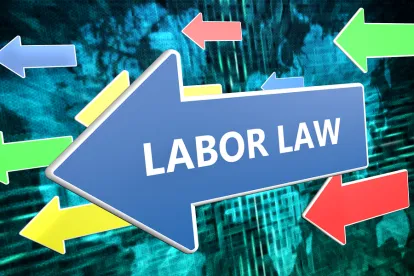California is a state of pioneers. It is in the vanguard of new legislation, often adopted later by other states. It is also known for its financial ventures into new technologies and research—ventures in amounts greater than the next 10 states combined. In 2018, California’s legal and investment landscapes will likely be blazing the same trail on issues of sexual harassment and gender inequality in the workplace.
A Gap in California Law
Under California law, there exist two types of sexual harassment claims: those that an employee can bring against an employer or supervisor, and/or those that an individual can bring against a professional with whom the individual has a business relationship. The former is by far the more common, but the latter has been making headlines recently.
Venture capitalists and private equity financiers in Silicon Valley wield tremendous power over tech entrepreneurs, even though they do not have business relationships with the employees of the companies they fund. Accordingly, neither type of sexual harassment claim covers, for example, an issue arising between a venture executive and an employee of a company financed by the venture capital firm. The same could be said for producers and directors in the movie industry who don’t employ or have direct business relationships with their accusers. It is precisely this gap in the law that has been the target of allegations made against movie producers and venture capital executives.
California Senate Bill 224
California law is changing to address this gap. Currently before the California State Legislature is Senate Bill 224, authored by Senator Hannah-Beth Jackson, that seeks to amend the professional sexual harassment claim of California Civil Code Section 51.9 to add lobbyists, directors, producers, and investors to those who can be liable for sexual harassment. This is clearly a bill in direct response to the events of 2017. Indeed, in describing her bill, Senator Jackson cites a New York Times article from June 30, 2017, “Women in Tech Speak Frankly on Culture of Harassment,” as the inspiration for her legislation. And this is just the tip of the iceberg: California ushered in a new era of gender equality via its Equal Pay Act, Labor Code Section 1197.5, in 2015 and 2016. In 2017, California went a step further and, following San Francisco’s lead, initiated a statewide ban on salary inquiries during the hiring process as a mechanism for enforcing pay equity effective January 1, 2018. It is also clear that California is but one of the growing number of jurisdictions changing their laws in order to enforce gender equality in the workplace.
Venture Capital’s Response
Venture capital (VC) is not blind to this movement. Reid Hoffman, cofounder of LinkedIn and a venture capitalist himself, began by making a decency pledge, and calling on the VC community to respond in kind. In doing so, he stated, “I think the industry should actively work on building a kind of industry-wide HR function, so that venture capitalists who engage in such behavior face the same sort of consequences that they would if their overtures were directed at an employee.” He went on to list certain steps, essentially tracking the legislative intent of Senate Bill 224.
Hoffman’s proposal certainly aims to better the relationship between VCs and the individuals and companies in which they invest. VCs, after all, are in a unique position to hold their portfolio companies accountable. It is in this sense that Hoffman’s industry-wide HR function has room for growth and influence, not just over VCs, but over Silicon Valley itself.
Here are some thoughts on the decency pledge and the future of venture capitalists in the #MeToo environment:
1. Internal Prevention
Venture capital and private equity firms may want to develop their own internal, robust anti-sexual harassment policies and trainings to heighten awareness and prevent harassment. These policies and trainings often include practical guidelines on when and where sexual harassment can occur, reporting mechanisms (including anonymous reporting mechanisms), anti-retaliation protections, and more.
2. Internal Investigation and Prosecution
Venture capital and private equity firms should consider developing procedures that encourage reporting and ensure effective investigation of complaints. There are many ways a company can do this, but designating a sufficiently senior executive with authority to hold accountable anyone in the company reported, and protect anyone who reports, is a strong start.
3. Internal Culture
Culture transcends policies and procedures, and a healthy workplace culture is evolving to include a focus on gender equality and collegiality. This may start as a declaration of values or goals to eliminate sexual harassment or gender inequality, but can go further and apply to hiring practices, investment choices, and more. Some companies have gone as far as implementing a type of “Rooney Rule” for structuring hiring practices. Other companies have devoted funds for diversity initiatives and taken other steps tailored to the unique culture(s) in Silicon Valley.
4. Portfolio Due Diligence
Venture capital and private equity firms are in a unique position to mandate that the companies they invest in share their cultural values against sexual harassment and maintain appropriate policies. This not only serves an egalitarian purpose, but reduces liability from claims under a Senate Bill 224 approach. Perhaps most importantly, from an investment perspective, it might serve to protect against the downside risk of CEOs being forced from their jobs, negative publicity that drives down brand value, and an exodus of talent crippling to an otherwise up-and-coming startup investment.
5. Portfolio Monitoring
Investment companies often monitor their portfolio clients via board seats or other mechanisms. Using these tools to monitor issues such as gender equality, sexual harassment, and workplace investments should be an important part of an investment strategy in the era of the #MeToo movement.
Powerful and influential figures in Silicon Valley have been accused of sexual harassment and creating company cultures toxic to women. Under a rubric envisioned by Senate Bill 224, this behavior could create liability for the investors behind those figures. Regardless, the very value of the investment itself could be impacted by an unhealthy company culture. For these reasons and many others, venture capital and private equity investors will want to pay attention. By taking a leadership role, such investors not only can protect their investments from damaging sexual harassment lawsuits and publicity, but can also catalyze a much-needed change for women to make Silicon Valley, and the world, a better place.





 />i
/>i

